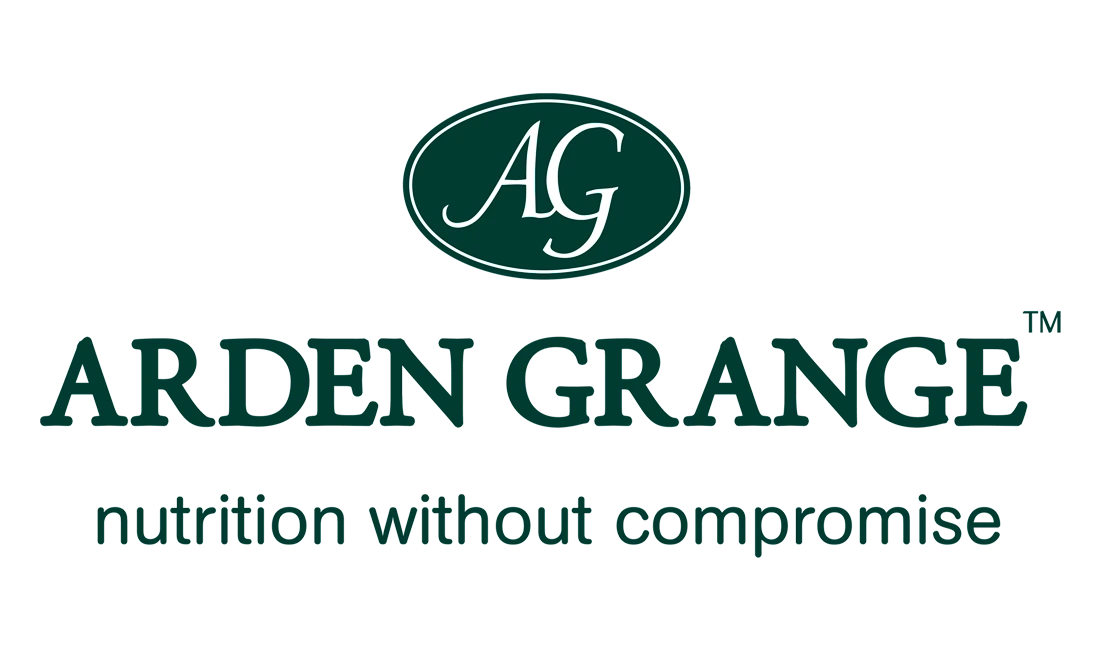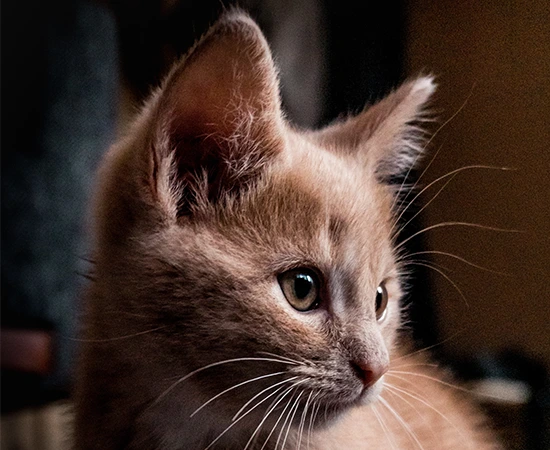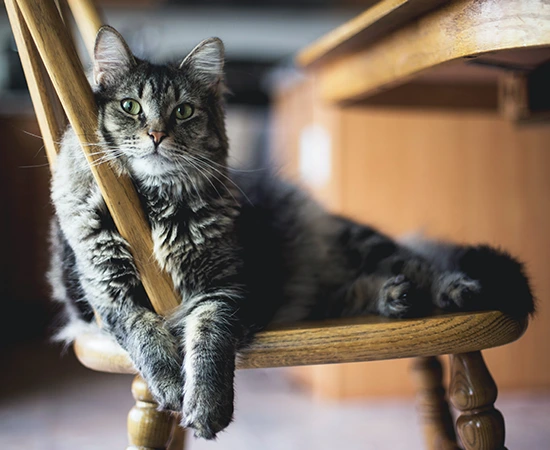Cat nutrition
Frequently asked questions
Kitten
Yes, but as with all treats, make sure it is fed in moderation only, and that the main diet is reduced to allow for the additional calories.
Please refer to the feeding guide that you find on every product and on our website.
Yes, all of our cat food range is free from grains and cereals.
If he is well developed and as tall as he is going to get or at risk of unwanted weight gain (e.g. neutered early and/or indoor cat) he can eat adult food.
A small kitten, especially if there is more upward growth to complete can be fed on our Kitten food (usually up until about a year of age).
Arden Grange Kitten food is suitable to introduce from weaning, which usually starts at around 3.5 - 4 weeks of age.
To provide steady energy release, and supply other nutrients including vitamin c, vitamin B6 and potassium.
It is often an ideal alternative carbohydrate source for cats known or suspected to be allergic or intolerant to grains/cereals.
In its cooked form, it is very digestible.
Adult cat
Yes, all of our cat food range is free from grains and cereals.
Many people are surprised to hear about the practice of soaking dry kibble. Unless your vet has specifically advised you one way or another there are no hard and fast rules about whether you should or shouldn’t soak it. Much depends on the individual cat dog – and convenience to the owner! Here are the main circumstances when soaking may be beneficial. Find out the benefits here.
To provide steady energy release, and supply other nutrients including vitamin c, vitamin B6 and potassium.
It is often an ideal alternative carbohydrate source for cats known or suspected to be allergic or intolerant to grains/cereals.
In its cooked form, it is very digestible.
Yes.
As with all treats, we recommend feeding in moderation, and reducing the main diet a little to accommodate the additional calories in anything fed in addition to the main diet.
No because our Light Cat Food provides many of the same supportive elements of a senior food (i.e. lower in fat/calories, inclusion of supplements to support joint health and the brain).
For underweight, slim or inappetent older cats, the Adult Cat Food can be fed as a higher calorie alternative.
This product also includes joint and brain support.
Fibres from citrus fruits.
Like the original Tasty Liver Treat, the tubes are aluminium with a foil seal and a plastic lid. They are fully recyclable.
Calories are 169kCal/100g for Salmon and 121kCal/100g for Turkey.
You can purchase special keys to help squeeze out the paste. You can also keep the product outside of the fridge during daily use (it will warm and soften in your pocket), but be careful to keep it out of reach so your pets cannot help themselves, and pop the tube away at night-time. The Salmon and Turkey pastes have a higher moisture content than the Original Liver, and these are easier to squeeze as a result.
Unfortunately not at this stage. The reason being that the product is cooked in the tube to sterilize it, and the material needs to be not only food-safe, but suitably robust and not leech any unpleasant flavours/aromas. Aluminum tubes are currently the most effective for palatability and stability of the products. Please see above regarding our special squeezing keys and guidance if you have any trouble with extracting the treat.




 Puppy
Puppy
 Adult
Adult
 Senior
Senior
 Sensitive
Sensitive
 Treats
Treats Kitten
Kitten
 Adult
Adult
 Senior
Senior
 Trusted British Brand
Trusted British Brand

